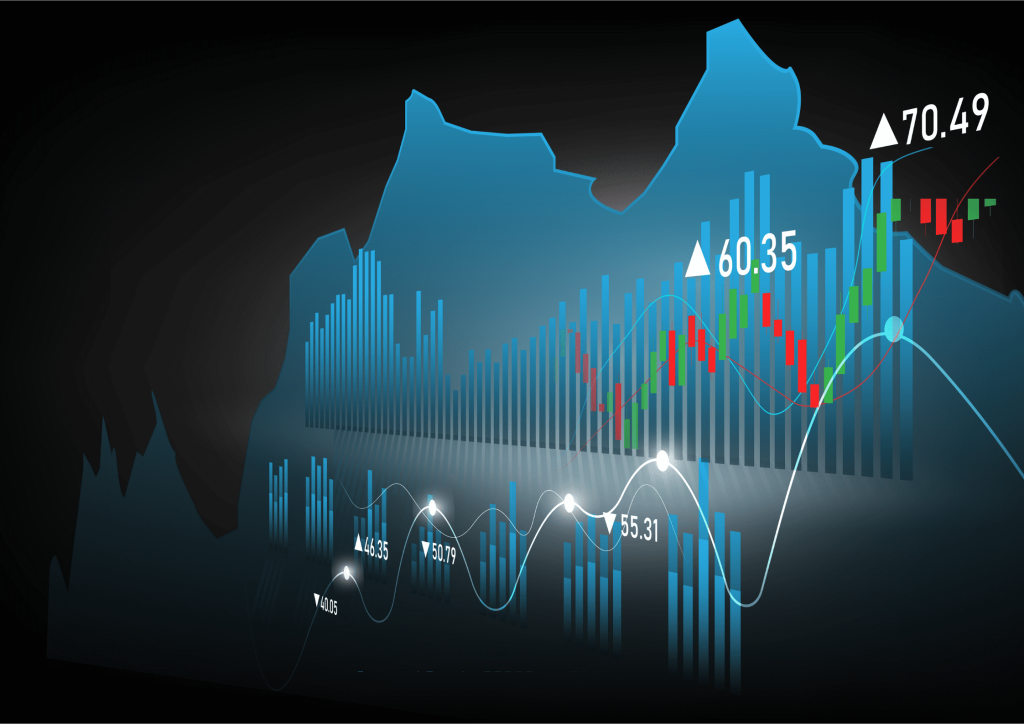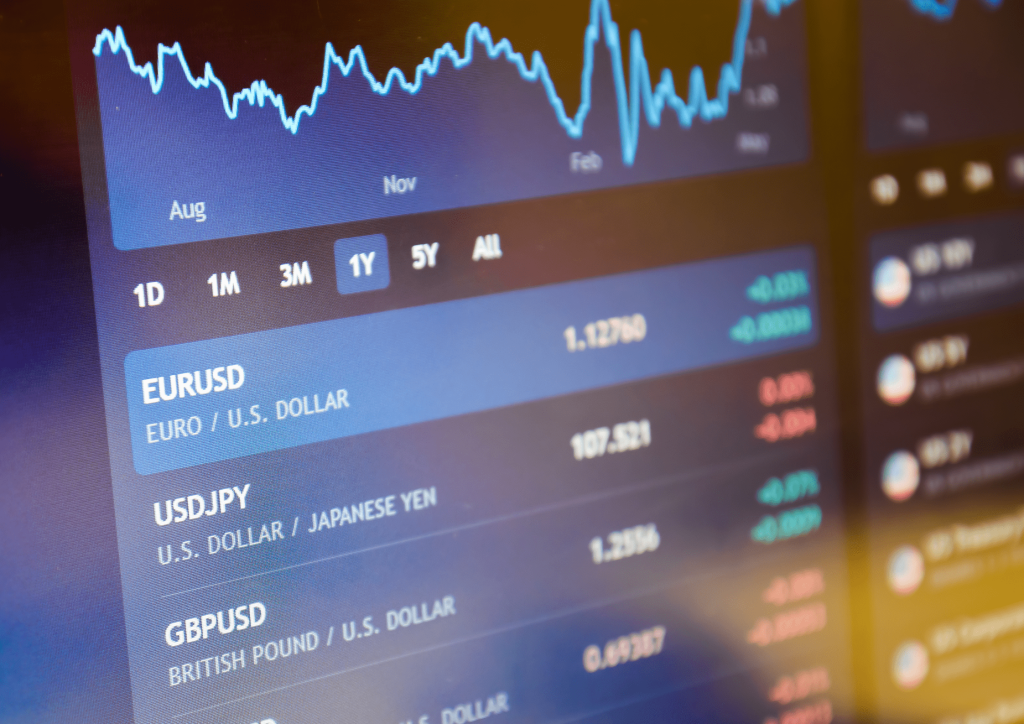[ad_1]

Overview
In the fast-paced world of foreign exchange trading (Forex), finding a reliable and cost-effective broker is crucial for traders seeking to maximize their profits. One essential factor to consider when selecting a Forex broker is the spread, which is the difference between the buying and selling prices of a currency pair.
This article aims to provide you with a comprehensive guide on finding the lowest spread Forex broker, ensuring you secure the best deals for your trades.
Historical Significance of Spreads
Understanding the historical significance of spreads in Forex trading is essential to grasp the relevance it holds for today’s generation. In the past, Forex trading was dominated by institutional investors, large banks, and financial institutions.
These market participants had access to interbank markets, where spreads were incredibly narrow due to the high liquidity and competitive environment.
However, with technological advancements and the rise of online trading platforms, individual retail traders now have direct access to the Forex market. This accessibility has opened up new opportunities for retail traders but has also presented challenges in finding brokers with low spreads.
Connection to Today’s Generation
Today’s generation of Forex traders benefits from increased competition among brokers, leading to tighter spreads and more favorable trading conditions. The availability of numerous online brokers has created a highly competitive market, driving brokers to offer competitive spreads to attract and retain clients.
Finding a broker with the lowest spread is crucial for today’s generation of traders due to several reasons:
Cost Optimization
Low spreads minimize transaction costs, allowing traders to keep a higher percentage of their profits. In the highly competitive Forex market, every pip counts, and reducing the spread can significantly impact overall profitability.
Accessibility for Retail Traders
The advent of online trading platforms has democratized Forex trading, making it accessible to retail traders worldwide. By finding brokers with low spreads, retail traders can compete on a more level playing field with institutional investors, improving their chances of success.
Scalping and Day Trading Strategies
Short-term trading strategies such as scalping and day trading rely on quick price movements to generate profits. For these traders, low spreads are crucial as they reduce the gap between entry and exit prices, making it easier to achieve desired results.
High-Frequency Trading (HFT)
High-frequency trading, executed by powerful computer algorithms, relies on taking advantage of small price differentials. To maximize the profitability of HFT strategies, low spreads are essential as they allow for rapid and frequent trading with minimal slippage.
Enhancing Risk Management
Tight spreads contribute to efficient risk management in Forex trading. By minimizing the cost of each trade, traders can effectively manage their risk-reward ratios, ensuring they can enter and exit positions at desired levels without significant slippage.
Also Read: What Does Spread Mean in Forex?
Understanding Forex Spreads

To fully grasp the significance of finding the lowest spread Forex broker, it is important to have a clear understanding of what spreads are and how they impact your trading experience.
In Forex trading, currency pairs are quoted with two prices: the bid price and the asking price. The bid price represents the price at which you can sell the base currency, while the asking price represents the price at which you can buy the base currency.
The difference between the bid and ask prices is known as the spread. It is essentially the cost you pay to enter a trade.
A narrow or low spread indicates a competitive pricing environment, where there is a minimal difference between the buying and selling prices. On the other hand, a widespread signifies a larger difference between the bid and ask prices.
The spread plays a crucial role in your trading experience for several reasons:
Transaction Costs
The spread directly affects your transaction costs. When you enter a trade, you automatically start with a slight loss due to the spread. Therefore, a narrower spread translates to lower transaction costs, allowing you to retain a larger portion of your potential profits.
Profitability
The size of the spread can impact your overall profitability. In a low-spread environment, the price does not need to move as much in your favor to reach a breakeven point or generate a profit.
This is especially significant for traders who engage in frequent trades, as narrower spreads increase the chances of achieving desired results.
Entry and Exit Points
The spread also affects your entry and exit points. When you open a trade, you enter at the asking price, and to close the trade, you exit at the bid price.
A wider spread means that the price must move further in your favor before you can exit the trade with a profit. This makes it more challenging to achieve desired profit targets.
Slippage
Wide spreads can increase the likelihood of slippage. Slippage occurs when the price moves against you during the time it takes to execute your trade. A wider spread amplifies the potential for slippage, resulting in unfavorable execution prices.
By understanding the impact of spreads on your trading, you can appreciate the importance of finding a Forex broker that offers the lowest spreads. Lower spreads not only reduce your transaction costs but also enhance your potential profitability and increase the likelihood of achieving desired trading outcomes.
Importance of Low Spreads

The importance of low spreads in Forex trading cannot be overstated, especially for active traders who frequently engage in trades, such as scalpers and day traders.
These traders rely on capturing small price movements and executing multiple trades within a short period. In this context, low spreads become a critical factor that can make a substantial difference in their trading outcomes.
A low spread means that the difference between the buying and selling prices of a currency pair is minimal. As a result, the price does not need to move as much in the trader’s favor to reach the break-even point or generate a profit. This cost efficiency is particularly advantageous for active traders as it directly impacts their bottom line.
By finding a Forex broker that offers low spreads, active traders can minimize their transaction costs. With each trade, there is an associated cost, which is the spread itself.
Lower spreads mean that traders retain a larger portion of their profits. This cost advantage becomes even more significant when executing a high volume of trades, as the cumulative savings from lower spreads can be substantial over time.
Additionally, low spreads contribute to enhancing the efficiency of various trading strategies, such as scalping and day trading. Scalpers aim to capitalize on small price movements and execute numerous trades within a short timeframe.
For them, a tight spread is crucial as it minimizes the gap between the entry and exit prices, allowing them to capture quick profits and reduce the impact of transaction costs.
Similarly, day traders who focus on taking advantage of intraday price fluctuations benefit from low spreads as they can enter and exit trades more efficiently, maximizing their profit potential within their trading timeframe.
Moreover, low spreads play a vital role in effective risk management. By reducing the cost of each trade, traders can maintain a favorable risk-to-reward ratio. This means that even if a trade doesn’t go as planned, the lower transaction cost of a low spread helps limit potential losses.
Effective risk management is crucial for long-term success in trading, and low spreads contribute to achieving this goal.
Factors Affecting Spread Size

The size of spreads offered by Forex brokers can be influenced by various factors. Understanding these factors is essential for effectively evaluating and comparing different brokers. Here are some key elements to consider:
Liquidity
The liquidity of a currency pair plays a significant role in determining the spread size. Highly liquid currency pairs, such as major pairs like EUR/USD and GBP/USD, tend to have lower spreads.
This is because these pairs have a large number of buyers and sellers in the market, creating a competitive pricing environment.
Market Conditions
Spreads can vary based on market conditions, particularly during periods of high volatility. Major economic announcements, geopolitical events, or unexpected market developments can lead to increased market volatility.
In such situations, spreads may widen as liquidity decreases and market uncertainty rises. It’s important to be aware of these conditions and consider how they may impact spread sizes.
Broker Type
Different types of brokers have different pricing models, which can affect the spreads they offer. Market makers, for example, may widen spreads to incorporate their profit margins.
They act as counterparties to clients’ trades and provide liquidity from their own inventory. On the other hand, ECN (Electronic Communication Network) brokers offer direct access to interbank liquidity, resulting in potentially tighter spreads. Understanding the type of broker you are dealing with is crucial when assessing spread sizes.
Account Type
Some brokers offer different account types with varying spreads. For instance, they may provide standard accounts with higher spreads and commission-based accounts with lower spreads.
It’s important to consider the account type that suits your trading style and objectives. If you engage in frequent trading, a commission-based account with lower spreads may be more cost-effective in the long run.
By considering these factors, you can make informed decisions when choosing a Forex broker. It allows you to evaluate the competitiveness of their spreads and select a broker that aligns with your trading preferences and goals.
Remember that while low spreads are desirable, it’s also crucial to assess other factors such as regulation, trading platform features, customer support, and overall trading conditions to ensure a well-rounded trading experience.
Researching Forex Brokers

When it comes to finding a Forex broker that offers the lowest spreads, conducting thorough research is crucial. Here are some steps to guide you in your search:
Review Comparison Websites
Start by utilizing reputable Forex broker comparison websites that provide comprehensive information on spreads, commissions, and other trading conditions.
These platforms often rank brokers based on various factors, making it easier for you to compare and shortlist potential options. Pay close attention to the spreads listed for different currency pairs to identify brokers with consistently low spreads.
Read Reviews and Feedback
Dive deeper into the broker’s reputation by reading reviews and feedback from other traders. Look for consistent mentions of low spreads and reliable execution.
This feedback can provide valuable insights into whether the broker consistently delivers favorable trading conditions or if there are any hidden costs or issues to be aware of. Consider multiple sources of reviews to ensure a balanced perspective.
Demo Accounts
Take advantage of brokers that offer demo accounts. These accounts allow you to test the broker’s trading platform and experience their spreads firsthand without risking real money.
Use the demo account to observe the quality of execution and verify that the spreads advertised by the broker match the actual trading conditions. This step allows you to assess if the broker’s spreads meet your expectations.
Contact Broker’s Support
If you have specific questions regarding spreads, commissions, or any other trading conditions, don’t hesitate to reach out to the broker’s customer support. Contacting them will not only provide you with the information you seek but also allow you to gauge their responsiveness and willingness to address your concerns.
A reliable and customer-focused broker will promptly assist you and provide transparency regarding their spreads.
Consider Regulation and Security
Ensure that any broker you consider is properly regulated by a reputable financial authority. Regulation helps protect your funds and ensures that the broker follows established guidelines and practices.
Check the broker’s website or contact their support to verify their regulatory status. Additionally, pay attention to the broker’s security measures to safeguard your personal and financial information. Look for features like encryption, two-factor authentication, and segregated client funds.
By following these steps and conducting thorough research, you can identify Forex brokers that offer low spreads while also considering other important factors such as regulation, security, customer support, and overall trading experience.
Remember, finding the lowest spread broker is just one aspect of choosing the right broker for your trading needs.
Other Considerations

While finding a Forex broker with low spreads is important, it’s essential to consider other factors that can impact your overall trading experience. Here are additional considerations to keep in mind:
Trading Platform
Evaluate the broker’s trading platform for its user-friendliness, stability, and availability of advanced features and tools. A well-designed and intuitive platform can greatly enhance your trading experience and allow you to execute trades efficiently.
Customer Support
Responsive and helpful customer support is invaluable, especially during critical trading situations or if you encounter technical issues. Check if the broker offers multiple support channels such as live chat, phone support, or email.
It’s beneficial to choose a broker with a reputation for providing reliable and efficient customer support.
Additional Costs
In addition to spreads, consider other costs associated with trading. Some brokers charge commissions on trades, have overnight holding fees for positions held overnight, or impose withdrawal/deposit charges.
Take these costs into account as they can impact your overall profitability. Compare and assess these costs among different brokers to make an informed decision.
Trading Instruments
Ensure that the broker offers a wide range of currency pairs and other financial instruments you intend to trade. Having access to a diverse range of markets can provide you with more trading opportunities and flexibility.
Check if the broker offers not only major currency pairs but also minor pairs, exotic pairs, and other instruments such as commodities, indices, or cryptocurrencies.
Execution Speed and Reliability
Look for brokers that offer fast and reliable order execution. Delays in order execution can lead to slippage, where your trade is executed at a different price than expected. Additionally, a reliable trading platform ensures that your orders are executed promptly without technical glitches or frequent requotes.
By considering these additional factors, you can ensure a more comprehensive evaluation of Forex brokers and select the one that best aligns with your trading style, preferences, and overall trading goals.
It’s important to strike a balance between low spreads and other crucial aspects to ensure a positive and rewarding trading experience.
Also Read: What Are Bid-Ask Spreads: How to Profit from the Difference
Conclusion
In conclusion, finding the lowest spread Forex brokers is a crucial aspect of ensuring a successful and profitable trading experience. However, it’s important to remember that low spreads should not be the sole determining factor when choosing a broker. Taking a holistic approach and considering various other factors will help you make an informed decision.
By understanding the factors that influence spreads, such as liquidity, market conditions, broker type, and account type, you can effectively evaluate and compare different brokers.
Conducting thorough research by reviewing comparison websites, reading reviews and feedback from other traders, testing demo accounts, and contacting the broker’s support team will provide you with valuable insights into the broker’s reliability and the actual trading conditions they offer.
In addition to low spreads, it’s crucial to consider other important factors. Evaluate the broker’s trading platform for its user-friendliness and availability of advanced features. Ensure that the broker provides prompt and helpful customer support, as it can make a significant difference in critical trading situations.
Consider additional costs associated with trading, such as commissions and overnight trading fees, as these can impact your overall profitability. Check if the broker offers a wide range of trading instruments that align with your trading preferences. Lastly, prioritize execution speed and reliability to minimize the chances of slippage and requotes.
By considering these factors and prioritizing a broker’s overall reputation, regulation, security, trading platform quality, and customer support, you can choose a Forex broker that not only offers competitive spreads but also provides a high-quality trading environment that suits your needs and objectives.
Remember, trading the Forex market involves risks, and selecting the right broker is just one part of a successful trading journey. It’s important to continuously educate yourself, develop a sound trading strategy, and manage risk effectively to achieve your trading goals.
Frequently Asked Questions
Why is it important to consider spreads when choosing a Forex broker?
Spreads directly impact your trading costs and profitability. A narrow spread means lower transaction costs, allowing you to retain a larger portion of your profits. By finding a low spread forex brokers, you can optimize your trading strategy and increase the likelihood of achieving desired trading outcomes.
How can I determine if a Forex broker offers low spreads?
To determine if a Forex broker offers low spreads, you can compare the spreads they offer for different currency pairs. Most reputable brokers provide this information on their websites. Additionally, you can utilize online broker comparison platforms and read reviews from other traders to gain insights into a broker’s spread offerings.
Are low spreads the only factor to consider when choosing a Forex broker?
While low spreads are important, they should not be the sole factor in choosing a Forex broker. Other factors such as regulation, security, trading platform quality, customer support, and additional costs (commissions, overnight fees, etc.) should also be considered. It’s important to take a holistic approach and find a broker that aligns with your trading needs and offers a well-rounded package of services.
[ad_2]
Source link


